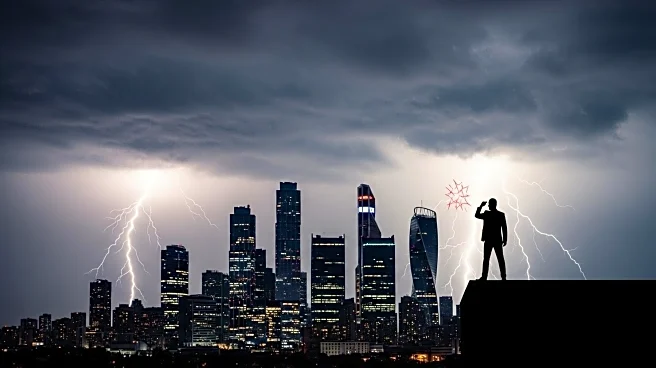What is the story about?
What's Happening?
Chicago Mayor Brandon Johnson is facing a significant challenge as President Trump threatens to militarily occupy the city, citing ongoing issues such as crime and homelessness. Trump’s approach has been criticized as an unconstitutional overreach and likened to authoritarian tactics. Johnson, who has implemented policies aimed at addressing root causes of crime, such as poverty and lack of mental health care, is advocating for community-based solutions rather than increased militarization. The situation has sparked debates on federal versus local authority and the best methods to ensure public safety.
Why It's Important?
The threat of military occupation in Chicago raises critical questions about federal intervention in local governance. It highlights the tension between national security measures and local autonomy. Mayor Johnson’s approach, focusing on social issues and community support, contrasts sharply with Trump’s militarized strategy. This conflict could have broader implications for U.S. cities facing similar challenges, influencing public policy and political discourse. The situation may affect public trust in government institutions and impact future elections, as citizens weigh the effectiveness of different approaches to urban issues.
What's Next?
As tensions escalate, Chicago may see increased advocacy and protests from community groups and civil rights organizations opposing federal intervention. Legal challenges could arise, questioning the constitutionality of Trump’s actions. Mayor Johnson and other local leaders may seek support from national allies to resist the occupation. The situation could lead to legislative efforts to clarify the limits of federal authority in local matters. Public opinion and media coverage will likely play a significant role in shaping the outcome.















